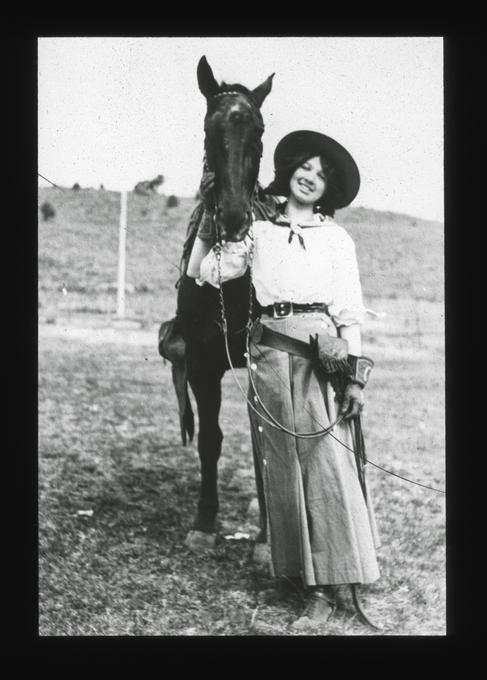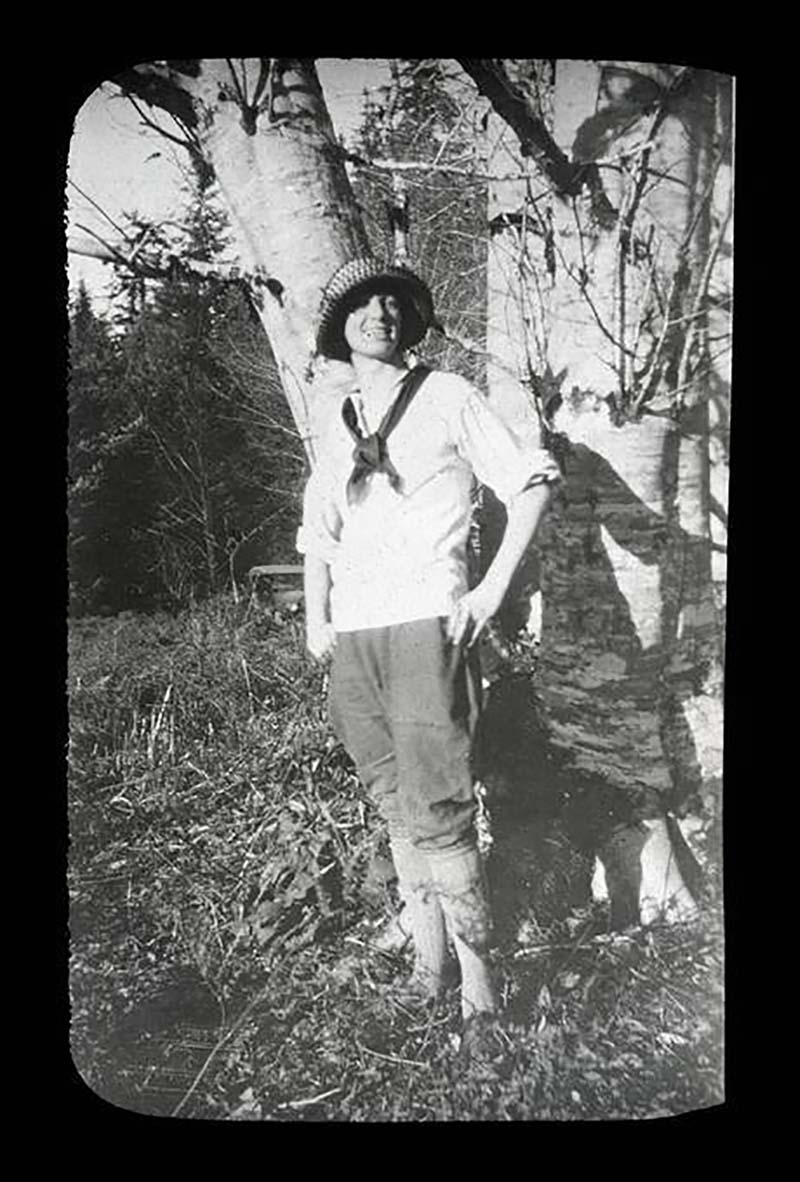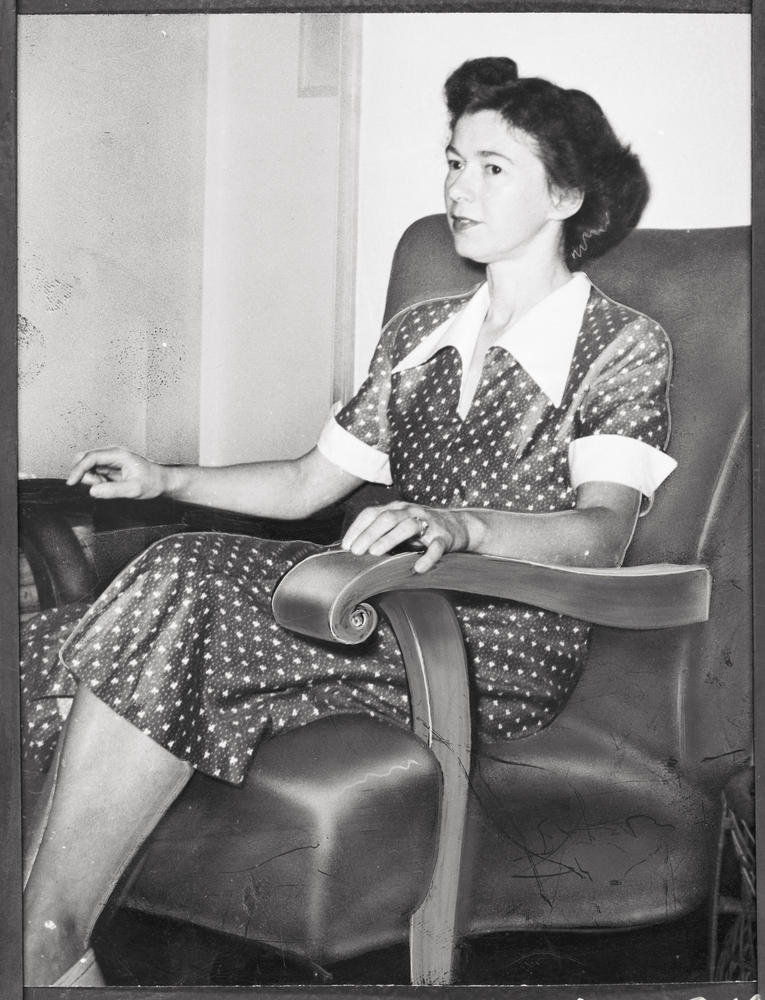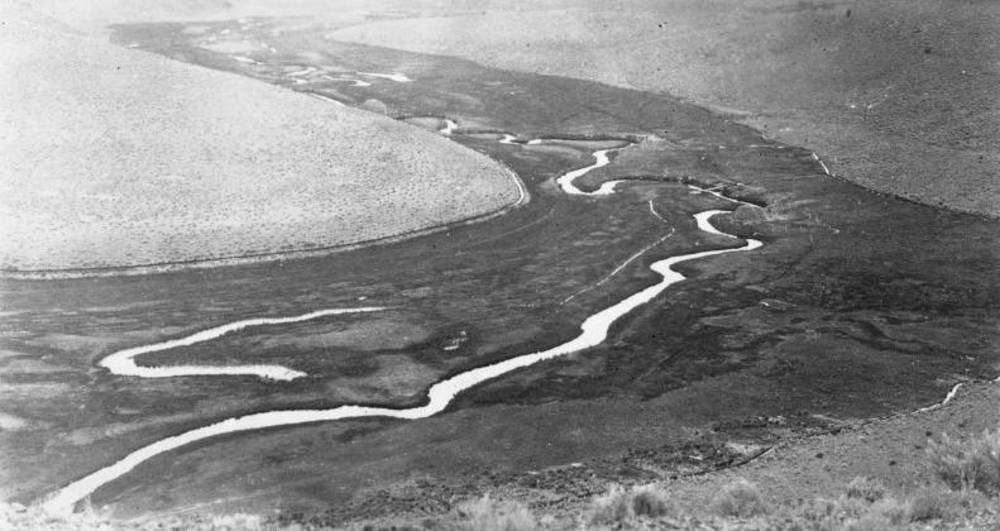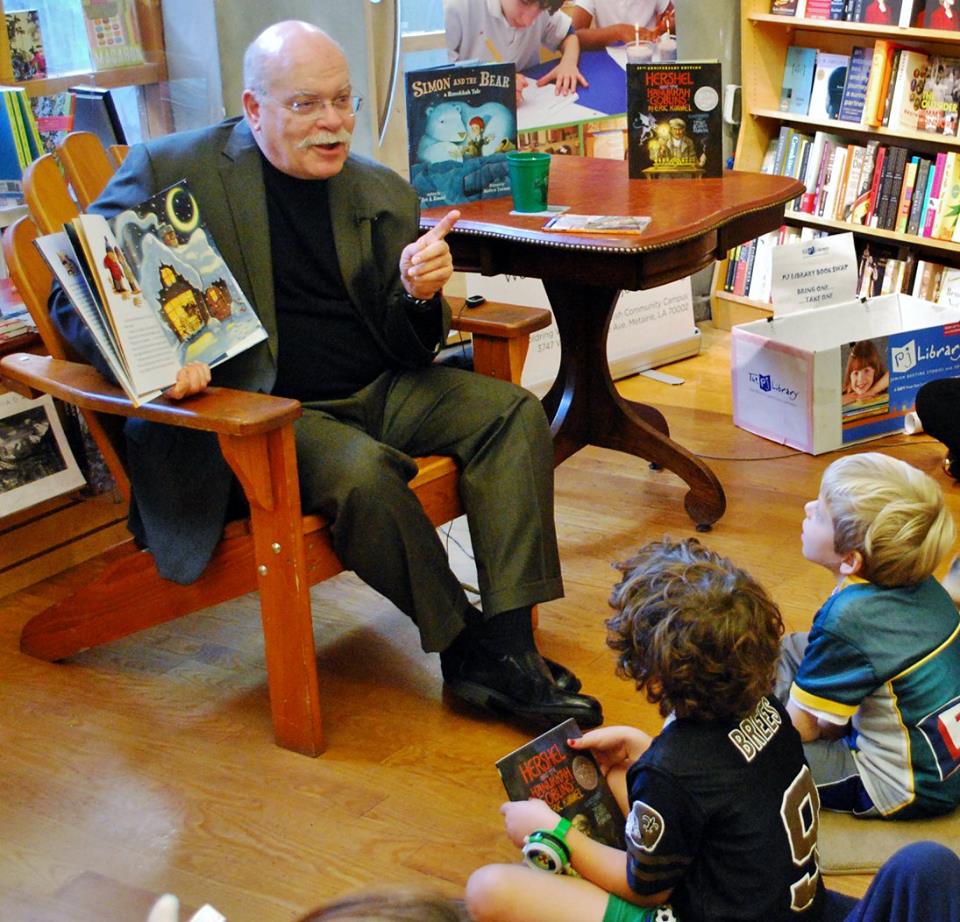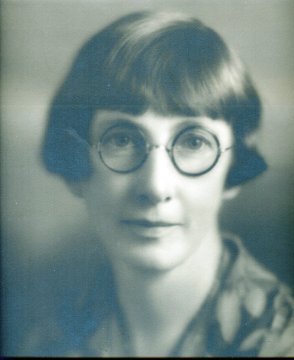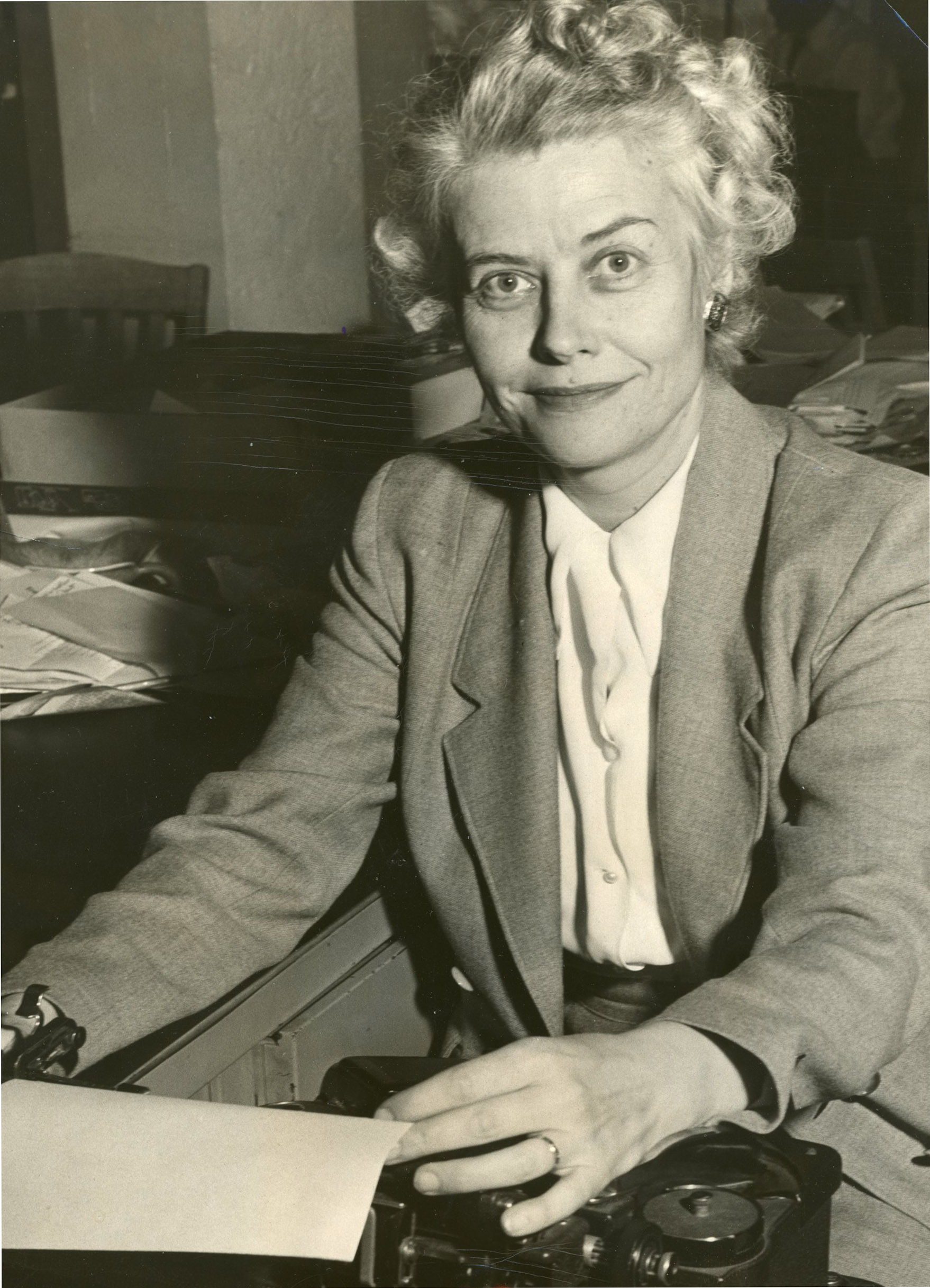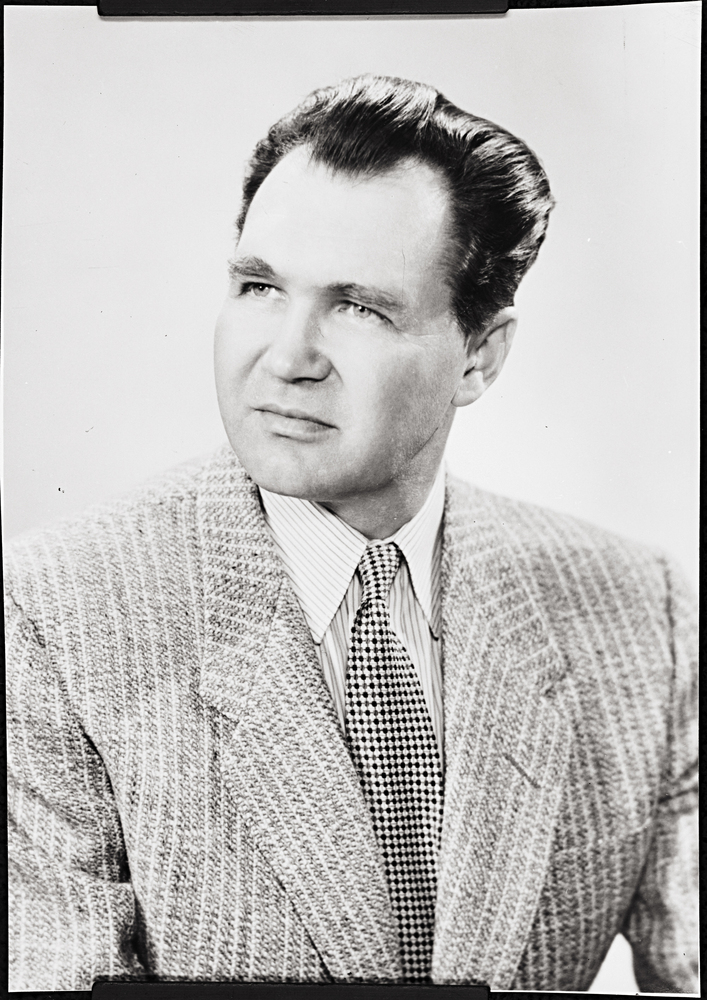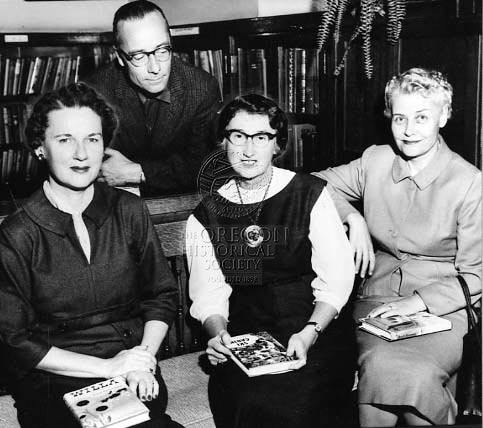Mary Carolyn Davies was a prolific Oregon writer whose promising literary career dissolved in something of a mystery after she moved to New York in the late 1930s. Best known for her lyric poems and children’s verse, Davies also wrote a novel, short stories, and several one-act plays. Reviewers compared her poetry favorably to that of Edna St. Vincent Millay and Elinor Wylie.
Born in 1888 in Sprague, Washington, a tiny town about forty miles southwest of Spokane, Davies moved to Portland at age twelve. She graduated from Washington High School in Portland in 1910 and spent a year teaching school on the Crooked River and in Rockaway. She entered the University of California at Berkeley in 1911.
At Berkeley, Davies was the first freshman to win the Emily Chamberlin Cook Prize for Poetry and the first woman to win the Bohemian Club prize, but she left the university after a year and moved to New York City’s Greenwich Village.
Davies reportedly arrived in New York with $4.85 in her pocket and proceeded to scratch out a living as a writer, producing “short stories, two serials, reams of sentimental verse—anything to keep alive,” Louis Untermeyer wrote. Davies’s work, he concluded, “divides itself into two distinct classes: the hackwork which she does for a living and the genuine poetry which she creates for its own sake.” Davies’s first book, a collection of war poems called The Drums in our Street, was published in 1918 and was dedicated to “my three brothers.”
Soon after, Davies moved back to Portland, where she was named president of the Women's Press Club of Oregon in 1920 and president of the Northwest Poetry Society in 1924. Her marriage to Leland Davis in 1918 ended in divorce.
During the 1920s, Davies’s published short stories and poems that appeared in magazines such as Collier’s, Cosmopolitan, Good Housekeeping, McClure’s, and Poetry and in prominent anthologies, including the Bookman Anthology of Verse and Modern American Poetry, edited by Untermeyer. She published little after that time, however, and largely disappeared from public life after she moved back to New York City during the 1930s.
In 1940, the Oregonian reported that Davies was destitute, sick, and emaciated, living in a bleak hallway room packed with “manuscripts and little else.” Doctors reportedly diagnosed her as anemic, and neighbors said she had little food. Ethel Romig Fuller, a Portland poet and Oregonian poetry editor visited her in New York and said that Davies had been in a “deplorable state” for at least two years. She did not explain how Davies had reached such a state.
There is no record of Davies's death in Oregon, and no obituary was published in either the Oregonian or the New York Times.
-
![]()
Mary Carolyn Davies, c. 1936.
Courtesy Oregon State University Libraries
-
![]()
Mary Carolyn Davies, 1936.
Courtesy Oregon State University Libraries
Related Entries
-
![Beverly Cleary (1916-2021)]()
Beverly Cleary (1916-2021)
Beverly Cleary is Oregon’s most famous author of children’s books. Born…
-
![Crooked River]()
Crooked River
The Crooked River Basin lies in the heart of central Oregon, east of th…
-
![Eric A. Kimmel (1946–)]()
Eric A. Kimmel (1946–)
Eric A. Kimmel is Oregon’s most prolific writer of children’s and young…
-
![Ethel Romig Fuller (1883-1965)]()
Ethel Romig Fuller (1883-1965)
Ethel Romig Fuller was Oregon’s first female poet laureate, from 1957 t…
-
![Evelyn Sibley Lampman (1907–1980)]()
Evelyn Sibley Lampman (1907–1980)
Evelyn Sibley Lampman was one of three Oregon writers of young adult an…
-
![Walt Morey (1907-1992)]()
Walt Morey (1907-1992)
Walt Morey (1907-1992) was one of four iconic writers who dominated chi…
-
![William Corbin (1916-1999)]()
William Corbin (1916-1999)
William Corbin McGraw and Eloise Jarvis McGraw, husband and wife, were …
Map This on the Oregon History WayFinder
The Oregon History Wayfinder is an interactive map that identifies significant places, people, and events in Oregon history.
Further Reading
Davies, Mary Carolyn. A Little Freckled Person: A Book of Child Verse. Boston: Houghton Mifflin Co., 1919.
Davies, Mary Carolyn. The Drums in Our Street: A Book of War Poems. New York: the MacMillan Co., 1918.
Davies, Mary Carolyn. The Husband Test Philadelphia: The Penn Publishing Co., 1921.
Davies, Mary Carolyn. The Skyline Trail: A Book of Western Verse. Indianapolis: Bobbs-Merrill Co., 1924.

